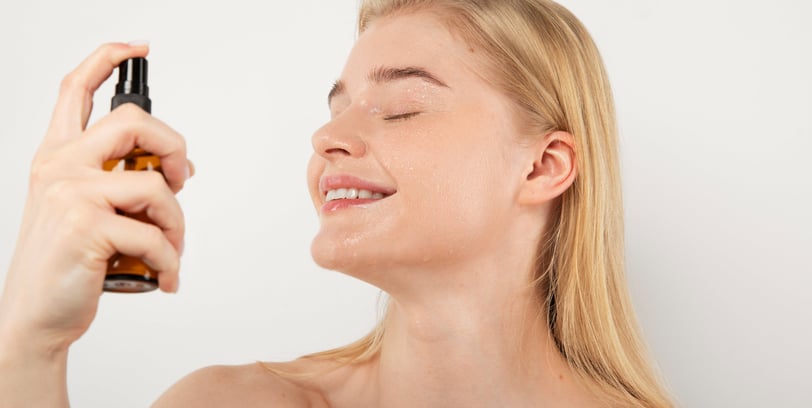Empower Your Body – Get Total Health and Fitness Guide
Are Serums Good for Skin Glow?
Are serums good for skin? Discover their benefits, common myths, and learn how to select the ideal serum.
BEST SERUMS FOR SKINARE SERUMS GOOD FOR SKIN HEALTH?
4/3/20253 min read


Do Serums Work for Skin Glow?
Enter the age of serums in dermatology! But the real burning question is, are serums any good for the skin? You will find cosmetic-forum enthusiasts with many praises for serums, but then, others, disgruntled by the same serum, will hardly cite any benefits. The article seeks to present an overview of the advantages of serums while clearly expressing any myths surrounding serum efficiency, as well as educating you on how and how not to use serums for maximum benefit.
What Are Serums?
Serum consists of a very lightweight fluid that absorbs very quickly. Because serums contain a much higher number of active ingredients compared to ordinary creams and lotions, they can be described as superior in function. Traditional moisturizers concentrate on coating the uppermost layer of skin, whereas serums penetrate deep to remedy wrinkles, acne, sheer spots, or dehydration. A huge variety of serum formulations provides solutions for the various and varying needs of any skin type, establishing serum as an important product in any skincare regimen.
Advantages of Serums
Serums are good for skin; here come some science-backed benefits:
- Deep Penetration. The small molecules are capable of penetrating deeper than the creams and packing their active ingredients down where they are most needed.
- High Potency- it carries a lot of active ingredients like Vitamin C, Hyaluronic Acid, and Retinol, which go to work more effectively than normal skincare products.
- Targeted Treatment-Various serums are developed to address specific problems; Some serums are more focused on brightening dull skin or reducing fine lines, while others may focus on minimizing breakouts.
- Non-Greasy- One of the best things about these is that they are so light that they get absorbed easily by oily skin and even acne-prone skin.
- Hydration and Glow boost- Hydrating agents such as Hyaluronic Acid and Niacinamide will keep skin more plump, hydrated, and radiant.
- Skin Repair- Nutrients with antioxidant properties found in serums can fight free radicals and environmental damage for healthier skin.
- Enhancing your skincare routine- When applied in the correct order, such serums can enhance the actions of other skincare products for quicker and more effective results.
Misconceptions about Serums
Blanket Misconceptions About Serums That Are Not Even Healed By The Best Serum!!
Well, new serums are trending nowadays, and some myths defy such glam. Here are the concrete deniers to some of them.
1) Replace a moisturizer with serums.
Wrong! They contain concentrated ingredients, wrap the skin up, and finally keep the moisture in. Care for the moisture-retaining agent with a moisturizer at the final step to get rid of moisture loss and protect the skin barrier.
2) Oily ones do not need serums.
Big No! Light and oil-free serums like Niacinamide or Salicylic Acid help in balancing oil levels and are a blessing to an acne-prone skin type, without adding to pore-clogging.
3) Serums cause breakouts.
Not quite so! Breakouts could be incited by serums that one does not know how to use well or by overly frequent application. Application must always be preceded by a patch test.
4) Serums should be used for overnight results.
Serums do deliver concentrated ingredients, but these visible effects take time to be achieved; hence, consistency is a must for long-term benefit for the skin.
Serums For All Skin Types
For the dry skin type→, So many serums out there-so full of hyaluronic acid and glycerin-that could keep the skin deeper hydrated.
For oily and acne skin types→, try some serums with Niacinamide or Salicylic Acid or even tea tree oil, which helps to regulate oil flow and keeps the skin clean from breakouts.
For the anti-aging skin type→, Retinol and Peptide serums enhance collagen and smoothen fine lines.
For hyperpigmented skin→, Serums with Vitamin C and Alpha Arbutin could brighten the skin and help in fading out dark spots.
For sensitive skin→, Chamomile, Aloe Vera, and Centella Asiatica tone down inflammation and redness.
How To Apply Serums For Best Results
On damp skin, a couple of drops will work wonders in hydrating.
It'll just make for an even better absorption.
Gently pat it on the skin. Never rub: that will irritate. Gentle pressure will enhance absorption.
Seal with a moisturizer that locks in hydration in the skin and reinforces the skin barrier function.
Use a sunscreen during the day to protect the skin from the sun if the serum contains active ingredients like Vitamin C or Retinol.
They must be applied in a specific order. Use water-based serums first before oil-based serums for a better absorption experience.
The Bottomline
So, do serums work?" Absolutely! They do. They work superbly when used correctly! Superbly hydrating and beneficial when it comes to anti-aging and skin health in general. But more importantly, find the serum that fits your skin and stay committed to routine. If you are a newbie on skin wonders, a good serum will work wonders to improve skin texture and glow!
Are you excited to raise your skin care game? Just go to Insight and search for serums worthy of your need, and let your skin glow with health. Your journey to healthy, glowing skin begins today! ✨
Visit the store for the best serum purchase: https://vincecare.com/
Healing
Your guide to herbal remedies and wellness solutions.
Contact us
contact@healnurtura.com
© 2025. All rights reserved.
